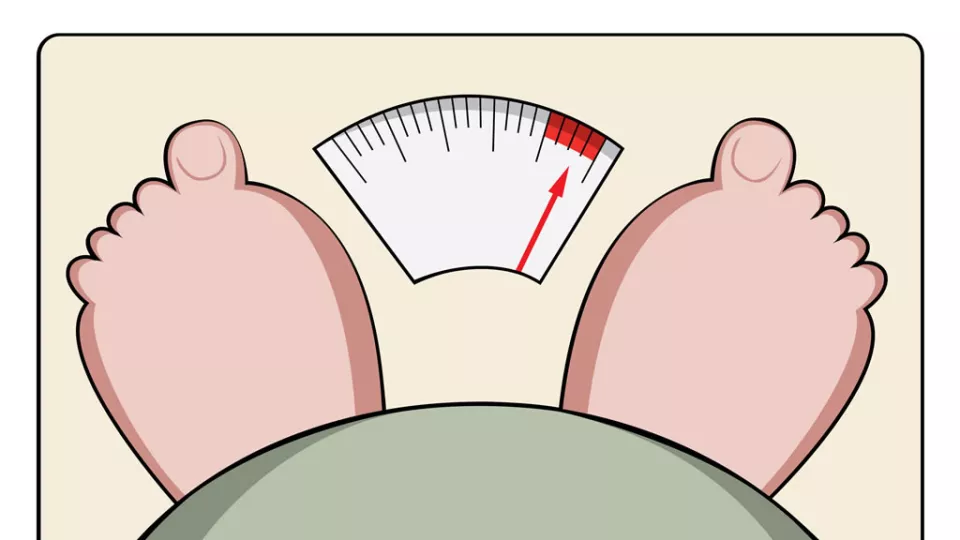Sleep is an important component of our life. We need sleep to function properly. To recharge our bodies we need rest and sleep daily. It plays an important role in our physical, mental, and overall wellness. Sleep helps us to function properly in everyday life. We are unable to perform in our daily life.
Why We Need Sleep
Sleep is necessary for our health and well-being because it is a complicated biological process. Several scientific facts about sleep are as follows:
During sleep, the brain is still working: Our brain is still working and processing information while we are sleeping. During various stages of sleep, various brain regions are active.
Rest is separated into stages: There are two main stages of sleep: sleep with both rapid eye movement (REM) and non-rapid eye movement (NREM). The three stages of non-REM sleep each have their own distinct pattern of brain waves and physiological changes.
Memories are consolidated during sleep: Different kinds of memories are consolidated throughout various stages of sleep, indicating that sleep plays an important role in memory consolidation.
Sleep deprivation can have serious health effects: Obesity, diabetes, cardiovascular disease, and depression are among the health issues that have been linked to chronic sleep deprivation.
Immune function is influenced by sleep: Research indicates that sleep deprivation can impair immune function and raise the risk of infection. Sleep is essential for immune function.
Age affects the need for sleep: The amount of sleep that is required by age varies, with newborns requiring up to 17 hours of sleep per day and adults typically requiring between 7 and 9 hours.
Sleep is controlled by the circadian rhythm: The body’s internal clock that controls sleep and other biological processes is called the circadian rhythm. It is affected by external factors like the cycles of light and dark.
Common sleep disordes: Insomnia, sleep apnea, and restless leg syndrome are all common sleep disorders which can have a significant impact on quality of life.
Quality of sleep is just important as quantity: The quality of one’s sleep is just as important as the quantity of sleep one gets. Sleep disorders, stress levels, and the environment in which you sleep can all have an impact on your quality of sleep.
Sleep can be influenced by genes: Sleep patterns and the likelihood of developing sleep disorders can be influenced by genetic factors. Sleep apnea and narcolepsy, for instance, may be inherited in some people.
These are just a few of the scientific facts about sleep. As we continue to learn more about this crucial biological process, research on sleep is ongoing.
Natural Methods for Improving Nighttime Sleep
It is essential for overall health and well-being to get a good night’s sleep, but many people struggle with sleep issues like insomnia or difficulty falling asleep. There are medications that can help you sleep, but there are also a lot of natural remedies that can help you sleep better. You can try these natural remedies:
Establish a consistent sleeping schedule: Even on weekends, try to get to bed and get up at the same time every day. This can make it easier to fall asleep at night and helps regulate your body’s internal clock.
Make a peaceful sleeping environment: Make sure your bedroom is dark, cool, and quiet. Avoid using electronic devices prior to bedtime and use soft bedding.
Relaxation techniques to try: Before going to bed, you can help your mind and body relax by practicing meditation, deep breathing, and progressive muscle relaxation.
Limit caffeine and liquor consumption: Coffee, tea, and soda—all of which contain caffeine—should be avoided before going to bed because caffeine can disrupt sleep. In addition to making you feel sleepy, alcohol can also affect how well you sleep.
Regular exercise: Exercise on a regular basis can help you get a better night’s sleep and make it easier to fall asleep. However, vigorous exercise too close to bedtime should be avoided because it can wake you up and make it harder to fall asleep.
Try natural treatments: In the past, herbs like lavender, chamomile, and valerian root have been used to help people sleep. These can be taken as tea or supplements, but you should talk to your doctor before trying any new supplements.
Think about aromatherapy: For better sleep and relaxation, essential oils like chamomile and lavender can be used in a diffuser or added to a bath.
It is essential to keep in mind that not all natural remedies are effective, and it is always in your best interest to consult your doctor before attempting any new treatments or supplements. Even if you try these remedies, if you still can’t fall asleep, it could be a sign of a deeper sleep disorder, so you should see a doctor.
The Significance of Getting Enough Sleep for Good health in General
Sleep is a very important part of our overall health. It is very important to our mental, emotional, and physical health. Our bodies are unable to carry out vital functions that ensure our health and optimal performance if we don’t get enough sleep.
The following are some of the main advantages of getting enough sleep for overall health and wellness:
Enhanced Physical Wellbeing: Our bodies work to regulate hormones, strengthen the immune system, and repair and restore cells and tissues while we sleep. Sleep also lowers blood pressure and lowers the risk of diabetes, obesity, and cardiovascular disease.
Enhanced Mental Performance: Sleep is necessary for cognitive processes like learning, memory consolidation, and problem-solving. Sleeping well can also help you focus and concentrate better, be more creative, and do better in general.
Better Emotional and Mental Control: Emotional regulation, mood stability, and stress management all depend on getting enough sleep. Anxiety, depression, and other mood disorders have been linked to decreased levels of sleep.
A Boost in Energy Output: Sleeping enough can help you feel more energetic, be more productive, and have a better quality of life as a whole. At the point when we are all around rested, we are more alarm, centered, and ready to perform better in our everyday exercises.
Athletic Performance Enhancement: Athletes and others who regularly engage in physical activity need to get enough sleep. It assists with fixing muscles, diminish aggravation, and upgrade muscle memory, which can work on athletic execution and recuperation.
Conclusion
Adults should get between 7 and 9 hours of sleep each night, but the exact amount depends on individual factors like age, lifestyle, and health conditions. Establishing a consistent sleep schedule, creating a tranquil sleeping environment, avoiding stimulating activities prior to bedtime, and practicing relaxation techniques like deep breathing or meditation are all important for improving sleep quality and overall health and wellness. We can support our overall health and well-being and enhance our quality of life by giving sleep priority.





